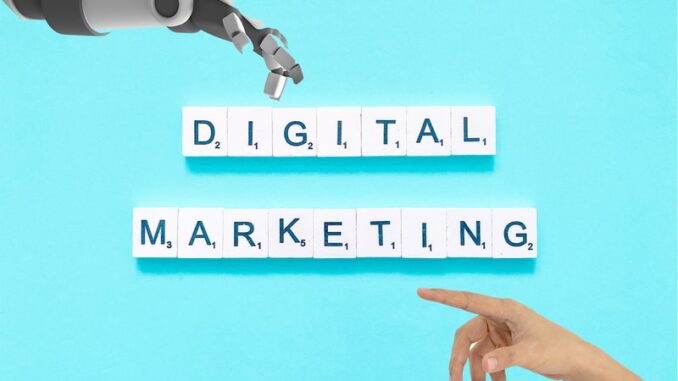
How AI Is Set to Change Digital Marketing
AI is increasingly becoming central to the digital world, so you can expect to see it affecting digital marketing. We already have voice searches and chatbots, but this is only the start. Here’s eight ways in which AI is going to cause waves in digital marketing.
Machine learning
Machine learning is the process by which computers can learn how to solve problems by using the information in existing datasets. When it comes to marketing, in practice this means SEO improvements, generating leads and targeting ads, as well as lots more.
AI means that machines will be making more basic, data-driven business decisions, giving the real-life humans more time and freedom to get on with the creative and financial parts of running an enterprise or marketing campaign.
Marketing will focus more on consumer behaviour
As AI is so strong on data analysis, this facility will be used on lots of different platforms. Pretty much all platforms now store analytics data to search for patterns, compile customer profiles and develop automatic systems to contact them. Machines will be able to devise their own outreach strategies, as well as to make purchasing decisions for customers based on their own previous habits, searches and purchases.
Semantic searching
Using machine learning and meta-analysis means that AI will be able to read more nuances into search terms by adding context and the previous behaviour of each customer. It’ll be able to combine secondary and long-tail keywords as well as information from several different datasets to arrive at ever-more customised and nuanced results. Ideally, semantic searching looks at the why of a search, not just the what.
Creating and curating content
We already have the WordSmith programme, which gathers together information on fact-based sectors like sports, stocks and so on and creates basic content from them. When it comes to curating content, AI will promote the content that’s most relevant to each user, according to their previous behaviour.
Improving voice searches
Speech recognition in devices is getting better all the time and AI can tap into this, as well as integrate it with the other types of searches to fine-tune and customise results.
Sifting out the best leads
AI can take over the grunt work of looking through reams of existing data to find the most ideal customers. We should expect it to be able to rate leads according to their potential before much longer, too, which frees up lots of human hours to make those sales calls and perfect those pitches.
Improved chatbots
We’re already familiar with chatbots, which can answer basic customer queries and fulfil simple orders and transactions. It used to be just the bigger companies that sported chatbots, but it’s becoming easier to integrate this facility into smaller enterprises and smaller websites, so we can expect to see more and better chatbots soon.
More automation and personalisation
AI is constantly learning more about consumer behaviour and profiling so advertisers will be able to target their marketing towards consumer preferences even more effectively.
At the moment, a lot of digital marketing is driven by trying, testing and adjusting, with results and tweaks always lagging a little behind. With AI, the analysing, tweaking and decision-making can be done on the hoof, saving time and bringing faster returns.
PAUL SMITH – For over 20 years I have worked with businesses, enterprises and brands in Australia, NZ, UK and US to drive digital marketing growth using organic and paid traffic strategies. No fluff or BS, just straight-forward return on investment.

Leave a Reply